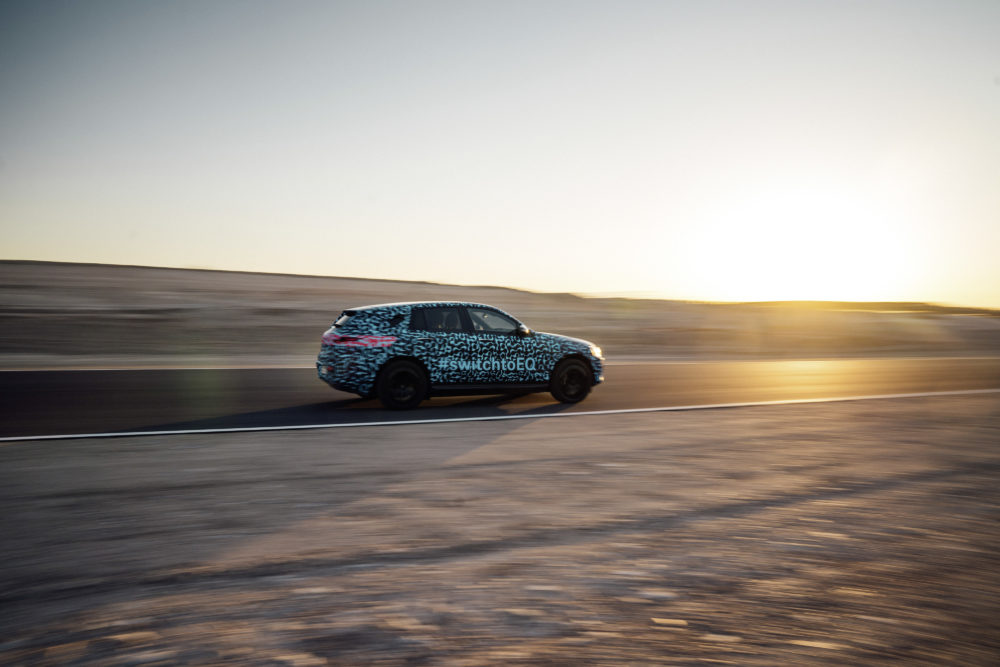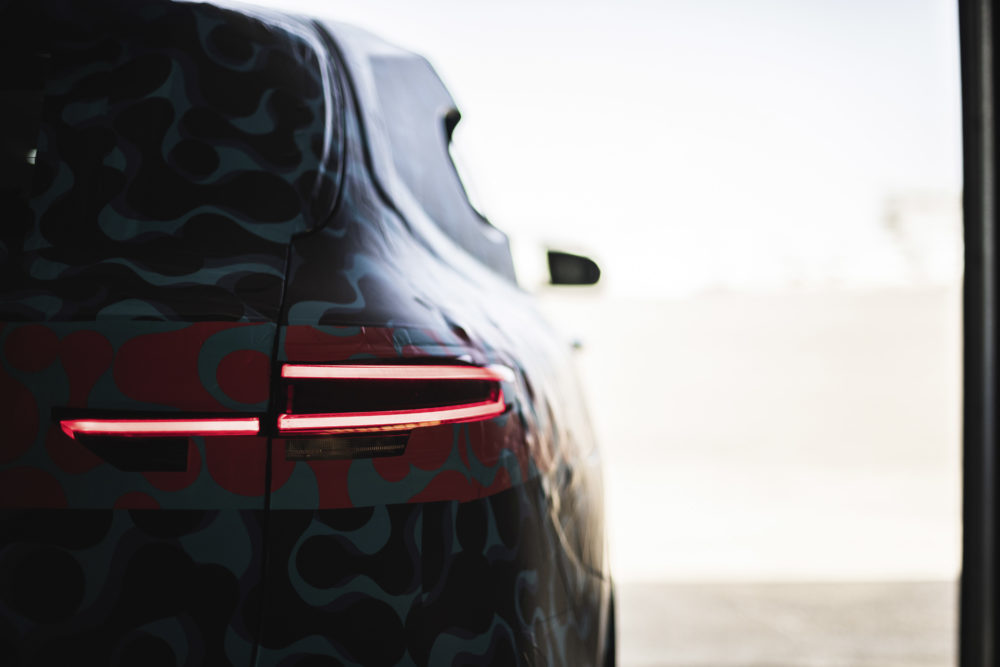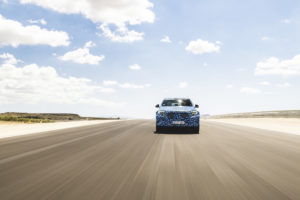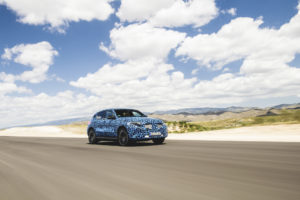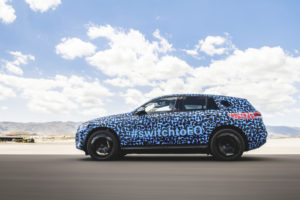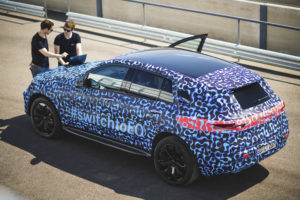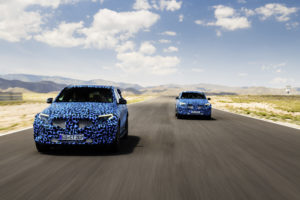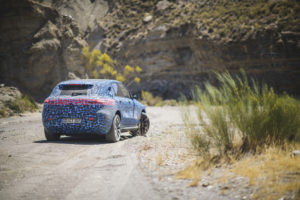Mercedes-Benz EQC Summer Trials Coming to Spain
Mercedes-Benz EQC winter trials were a success but can it handle the Iberian Peninsula’s dry heat?
Following successful winter trials, Mercedes-Benz sets it’s sights on Spain’s Iberian Peninsula as the next test stage for the Mercedes-Benz EQC but it’s not out of the woods yet. Out of the freezer and now directly into the frying pan.
The next phase for the EQC is an extensive test program in the burning summer heat with temperatures of up to 122 degrees Farenheit. Mercedes will pay close attention to the most demanding aspects of electric cars: air conditioning, charging, battery cooling, drive system and control units in extreme heat. Naturally, classical criteria such as driving dynamics and ride comfort are also subjected to more stringent tests.
“With the finishing straight in sight, we are now able to absolve another extremely demanding test program with our pre-series vehicles,” said Michael Kelz, Chief Engineer for the EQC, in a recent press statement. “But after successfully completed endurance tests in winter at minus [95 degrees Farenheit], we are confident that the heat trials will confirm that we are well on schedule for the start of series production.”
Dry Heat Challenge
Dry heat is challenge number one because while the battery of an electric car “merely” loses power in the cold, exposure to great heat carries the risk of battery damage. Optimum management of these physical characteristics is the aim of the extreme tests in Spain. One main focus is on the battery’s cooling circuit—how does it cope with high power requirements? How does an almost fully charged battery respond to further charging? What influence does heat have on its operating range? Battery draining tests, i.e. test drives in which the battery is completely drained of power, are also part of the test program.
Another aspect is air conditioning–both during a journey and beforehand—as pre-climatization is an important comfort factor. Is the indicated time sufficient for pre-climatization? Is the calculated range correct when the temperature is taken into consideration? Furthermore, the noise characteristics of individual component, such as the air conditioning compressor in the heat are specifically examined.
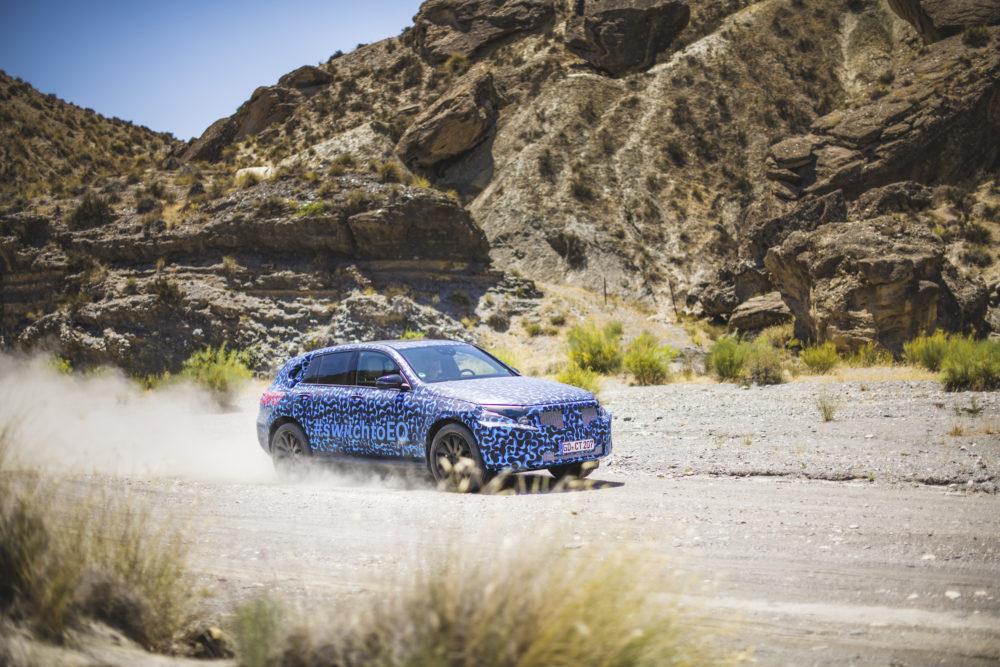
Measuring Fine Dust
Technicians also plan to measure the amount and location of fine dust accumulation regarding electrical components. Specifically, they want to see whether the sealing concept works in practice.
Different countries present different circumstances, and this is a very important part of the Mercedes-Benz test program. Will the Mercedes-Benz EQC’s individual systems achieve general operability internationally? Can it recognize slightly differently designed traffic signs? What about reliably recognizing tolls? Can its camera correctly detect speed limits of the assistance systems? All of these questions are also examined by the developers during their busy test weeks in Spain.
Final Validation
Systematic vehicle validation is among the most extensive measure in the development process of every Mercedes-Benz model series. Before a new product goes into production, the complete vehicle must reach a maturity level set by Mercedes-Benz. This takes place in several stages.
The first step is digital preliminary design and simulation. It is then followed by validation either of individual components on dynamometers or in test vehicles. This evaluates and validates the durability of a powertrain connection or of individual axle parts.


